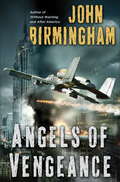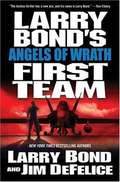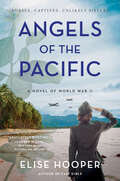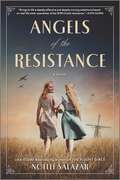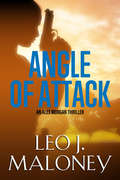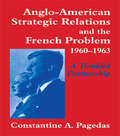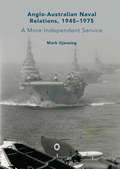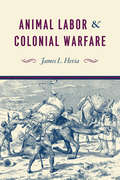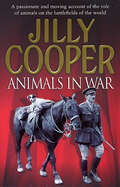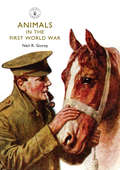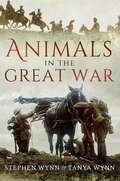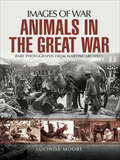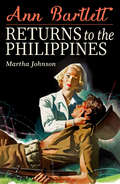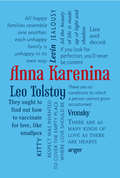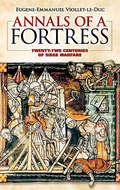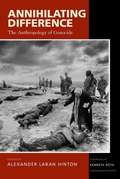- Table View
- List View
Angels of Vengeance
by John BirminghamWhen an inexplicable wave of energy slammed into North America, millions died. In the rest of the world, wars erupted, borders vanished, and the powerful lost their grip on power. Against this backdrop, with a conflicted U.S. president struggling to make momentous decisions in Seattle and a madman fomenting rebellion in Texas, three women are fighting their own battles--for survival, justice, and revenge.Special agent Caitlin Monroe moves stealthily through a South American jungle. Her target: a former French official now held prisoner by a ruthless despot. To free the prisoner, Caitlin will kill anyone who gets in her way. And then she will get the truth about how a master terrorist escaped a secret detention center in French Guadeloupe to strike a fatal blow in New York City.Sofia Peiraro is a teenage girl who witnessed firsthand the murder and mayhem of Texas under the rule of General Mad Jack Blackstone. Sofia might have tried to build a life with her father in the struggling remnants of Kansas City--if a vicious murder hadn't set her on another course altogether: back to Texas, even to Blackstone himself.Julianne Balwyn is a British-born aristocrat turned smuggler. Shopping in the most fashionable neighborhood of Darwin, Australia--now a fantastic neo-urban frontier--Jules has a pistol holstered in the small of her lovely back. She is playing the most dangerous game of all: waiting for the person who is hunting her to show his face--so she can kill him first.Three women in three corners of a world plunged into electrifying chaos. Nation-states struggling for their survival. Immigrants struggling for new lives. John Birmingham's astounding new novel--the conclusion to the series begun in Without Warning and After America--is an intense adventure that races from the halls of power to shattered streets to gleaming new cities, as humanity struggles to grasp its better angels--and purge its worst demons.From the Hardcover edition.
Angels of Wrath (First Team #2)
by Larry Bond Jim DefeliceLed by CIA agent par excellence Bob Ferguson, the Team pitches in to help the FBI investigate a radical group of zealots who want to create a "post-Christian" era by instigating a catastrophic showdown in Jerusalem. But Ferg and company soon discover that the cult has strange connections to the Iraqi resistance and to a Syrian arms dealer. Enlisting the help of Thera Majed, a beautiful paramilitary and an expert on Middle Eastern relations, the team breaks up to track each link. They seek to stop anything catastrophic from happening before the president arrives in Iraq for the next round of elections. Their quarries lead Team members into an immensely complicated world of fanatical terrorists, each potentially dangerous... but who among them is the next to strike? Uncertain of the most imminent threat, the Team finds that they have landed in the midst of an operation headed by Israel's famous Mossad and are ordered to cooperate with the Israelis... but are the Israelis cooperating with them? Unsure of their allies, the Team realizes that they are on the trail of two completely different attacks, whose targets are thousands of miles apart. Both operations are intended to trigger a vast religious war. With the clock ticking down, can the team extinguish the spark of Armageddon?
Angels of the Pacific: A Novel of World War II
by Elise Hooper"Absolutely riveting. A stay-up-all night read about two very different women who discover just how strong they can be—and just how much they'll dare—during the brutal Japanese occupation of the Philippines in World War II. This story of endurance and sisterhood will have you turning pages late into the night." —Lauren Willig, New York Times bestselling authorIf you loved Beantown Girls by Jane Healey and Hazel Gaynor’s When We Were Young & Brave, then you won’t want to miss critically acclaimed author Elise Hooper’s powerful new novel of the Angels of Bataan, nurses held as prisoners during the occupation of the Philippines in World War II.Their survival would depend on sisterhood and service.Inspired by the extraordinary true stories of World War II’s American Army nurses famously known as the Angels of Bataan and the unsung contributions of Filipinas of the resistance, this novel transports us to a remarkable era of hope, bravery, perseverance, and ultimately—victory.The Philippines, 1941: Tess Abbott, an American Army nurse, has fled the hardships of the Great Depression at home for the glamour and adventure of Manila, one of the most desirable postings in the world. But everything changes when the Japanese Imperial Army invades with lightning speed and devastating results. Tess and her band of nurses serve on the front lines until they are captured as prisoners of war and held behind the high stone walls of Manila’s Santo Tomas Internment Camp.When the Japanese occupation of her beloved homeland commences, Flor Dalisay, a Filipina university student, will be drawn into the underground network of resistance, discovering within herself reserves of courage, resilience, and leadership she never knew she possessed.As the war continues, Tess and Flor face danger, deprivation, and terror, leading them into a web of danger as they unexpectedly work together to save lives and win their freedom.
Angels of the Resistance: A WWII Novel
by Noelle Salazar&“Angels of the Resistance brings to life a deadly-effective and deeply moving sisterhood.&” —Kate Quinn, New York Times bestselling author of The Rose CodeFrom the bestselling author of The Flight Girls comes a story inspired by true events, about courageous women who risked everything for country, for family, and for each other.Netherlands, 1940As bombs fall across Europe, fourteen-year-old Lien Vinke fears that the reality of war is inescapable. Though she lives a quiet life with her mother and older sister, Elif, in their small town of Haarlem, they are no strangers to heartache, having recently suffered an immeasurable loss. And when the Nazis invade the Netherlands, joining the Dutch resistance with Elif offers just the atonement Lien craves.Trained to shoot by their late father, the sisters are deadly wolves in sheep&’s clothing. They soon find themselves entrenched in the underground movement, forging friendships with the other young recruits, and Lien even discovers a kindred spirit in a boy named Charlie. But in wartime, emotional attachments are a liability she can&’t afford, especially when a deeply personal mission jeopardizes everything she holds dear—her friendships, her family, and her one shot at redemption.&“This story of two teenage sisters who risk everything to join the Dutch Resistance is a dazzling tour-de-force.&” —Karen Robards, bestselling author of The Black Swan of Paris
Angle of Attack (An Alex Morgan Thriller #1)
by Leo J. MaloneyReal-life Black Ops veteran Leo J. Maloney launches an electrifying new series featuring Alex Morgan, daughter of legendary operative Dan Morgan and a formidable force in her own right.ANGLE OF ATTACK Alex Morgan&’s new mission for Zeta plunges her into a web of danger threatening Europe&’s glamorous Formula One racing circuit. It quickly escalates into a race against time to track down a missing supply of weapons-grade plutonium headed for North America. From a secret prison in Iran to the glittering casinos of Monaco, to the jungles of Malaysia, and to the dark side of Montreal, Alex is up against a deadly and far-reaching conspiracy. Each step of the way, she&’s dogged by a shadowy figure determined to destroy her. Alex has the grit to deal with any external threat, but this is a new kind of peril from a source shockingly close to home—one that will make Alex question everything she once believed... Praise for Leo J. Maloney and His Novels &”Fine writing and real insider knowledge.&” —Lee Child &“Rings with authenticity.&” —John Gilstrap &“Everything a thriller reader wants.&” —Ben Coes &“The new master of the modern spy game.&” —Mark Sullivan &“A ripping story!&” —Meg Gardiner
Anglo-American Strategic Relations and the Far East, 1933-1939: Imperial Crossroads (Strategy and History #No. 5)
by Greg KennedyThis volume charts how the national strategic needs of the United States of America and Great Britain created a "parallel but not joint" relationship towards the Far East as the crisis in that region evolved from 1933-39. In short, it is a look at the relationship shared between the two nations with respect to accommodating one another on certain strategic and diplomatic issues so that they could become more confident of one another in any potential showdowns with Japan.
Anglo-American Strategic Relations and the French Problem, 1960-1963: A Troubled Partnership
by Constantine A. PagedasDrawing on official records and private papers, this book offers insights into Anglo-American reactions to France's development of an independent nuclear capability; France's bid for the political leadership of Europe; Britain's first application to join the EEC; the controversial US multilateral force (MLF) proposal for NATO; Britain's numerous propositions to France for the development of an independent European nuclear force; the tense Anglo-American diplomatic quarrel that was the Skybolt crisis; and the creative diplomacy that produced the Nassau Agreement of December 1962.
Anglo-Australian Naval Relations, 1945–1975: A More Independent Service
by Mark GjessingThis book examines Anglo-Australian naval relations between 1945-75, a period of great change for both Australia and Great Britain and their respective navies. It explores the cultural and historical ties between the Royal Navy and the Royal Australian Navy (RAN), the efficacy of communications between the services, and the importance of personal relations to the overall inter-service relationship. The author assesses the dilemmas faced by Great Britain associated with that nation’s declining power, and the impact of the retreat from ‘East of Suez’ on the strategic relationship between the United Kingdom and Australia. The book also considers operational co-operation between the Royal Navy and the RAN including conflicts such as the Korean War, the Malayan Emergency, and confrontation with Indonesia, as well as peacetime pursuits such as port visits and the testing of atomic weapons in the 1950s. Co-operation in matters of personnel and training are also dealt with in great detail, along with the co-operation between the Royal Navy and the RAN in equipment procurement and design and the increased ability of the RAN to look to non-British sources for equipment procurement. The book considers the impact of stronger Australian-American ties on the RAN and appraises the role it played in the conflict in Vietnam.
Angola: A Modern Military History, 1961-2002
by Stephen L. WeigertThis study is the first comprehensive assessment of warfare in Angola to cover all three phases of the nation's modern history: the anti-colonial struggle, the Cold War phase, and the post-Cold War era. It also covers, in detail, the final phase of warfare in Angola, culminating in Jonas Savimbi's death and the signing of the Luena Accord
Aniela Kaminski's Story: A Voyage from Poland during World War II (Journey to America Series)
by Clare PastoreThey left their homelands during the worst moments in history and arrived in America ready to reach for their dreams. These are their stories... Dear Jadzia,I thought Papa and I would never make it out of Poland. I was afraid the Nazis would find us and send us to jail. After Stefan was arrested, I knew it could happen to us, too. Do you have any news of him? I hope and pray that he is safe. And Edith, too. It makes me angry to think that people hate her just because she is Jewish. You would love America. Life is so much better here. We are staying with my aunt and uncle in a city called Chicago, and there is lots of good food to eat. And guess what? I might even start taking piano lessons again! I wish you were here, Jadzia. I miss you so very much... Your friend, Aniela
Animal (The\boundaries Ser. #3)
by Lexxie CouperDanger lurks in the farthest reaches of space, where sex is a reward and a weapon, alien drug lords blight the landscape, and assassination is a means to an end. Animal by award winning sci-fi paranormal author Lexxie Couper, is Book 3 of The Boundaries series. Get ready for another thrilling ride to distant planets, where the lines between friend and foe are blurred.The stunning conclusion to The Boundaries trilogy begins...The brutal crime lord Hrung Crortek has seized Terran Boundary Guardian Zeric Arctos, hoping to extract Zeric's werewolf DNA for use in an illegal genetic serum. Now Jaienna Ti, Intel-Patrol Corp agent and sexual assassin, is on a mission to wipe Crortek from existence-and she's taking her ex-partner Raq Tornada along for the ride!But when Tornada finally reveals-in no uncertain terms-how deeply he's in love with her, Jaienna faces a completely unexpected conflict: does she stay with the man who first shattered her heart, or does she go with the man who taught her to love again-the brooding, untameable werewolf she's trying so desperately to save?When lust, love, and longing become inextricably entwined, the Outer Boundaries become more dangerous than ever. Because Jaienna never planned on losing her heart to two men. And those two men never ever planned on sharing her. But unless Raq Tornada agrees to help Jaienna rescue his rival, Zeric Arctos is already doomed...This erotic sci-fi paranormal romance contains wild explosive sex in space, and is not intended for readers under the age of 18.Previously Published: (2011) 5x5 Publishing
Animal Labor and Colonial Warfare
by James L. HeviaUntil well into the twentieth century, pack animals were the primary mode of transport for supplying armies in the field. The British Indian Army was no exception. In the late nineteenth century, for example, it forcibly pressed into service thousands of camels of the Indus River basin to move supplies into and out of contested areas—a system that wreaked havoc on the delicately balanced multispecies environment of humans, animals, plants, and microbes living in this region of Northwest India. In Animal Labor and Colonial Warfare, James Hevia examines the use of camels, mules, and donkeys in colonial campaigns of conquest and pacification, starting with the Second Afghan War—during which an astonishing 50,000 to 60,000 camels perished—and ending in the early twentieth century. Hevia explains how during the nineteenth and twentieth centuries a new set of human-animal relations were created as European powers and the United States expanded their colonial possessions and attempted to put both local economies and ecologies in the service of resource extraction. The results were devastating to animals and human communities alike, disrupting centuries-old ecological and economic relationships. And those effects were lasting: Hevia shows how a number of the key issues faced by the postcolonial nation-state of Pakistan—such as shortages of clean water for agriculture, humans, and animals, and limited resources for dealing with infectious diseases—can be directly traced to decisions made in the colonial past. An innovative study of an underexplored historical moment, Animal Labor and Colonial Warfare opens up the animal studies to non-Western contexts and provides an empirically rich contribution to the emerging field of multispecies historical ecology.
Animals In War
by Jilly Cooper OBEPigeons carrying vital messages to and from the beleaguered city during the Siege of Paris; horses and mules struggling through miles of fetid mud to bring ammunition to the front in the Great War; dogs sniffing out mines for the British invasion force in the Second World War - countless brave animals have played their part in the long, cruel history of war. Some have won medals for gallantry - like G.I. Joe, the American pigeon who saved 100 British lives in Italy, and Rob, the black and white mongrel who made over twenty parachute jumps with the SAS. Too many others have died abandoned, in agony and alone, after serving their country with distinction. Jilly Cooper has here written a tribute to the role of animals in wartime. It is a tragic and horrifying story - yet it has its lighter moments too: a hilarious game of musical chairs played on camels during the Desert Campaign; and the budgie who remarked, when carried from a bombed-out East End tenement, 'This is my night out'. This is a vivid and unforgettable record of man's inhumanity to animals, but also an astonishing story of courage, intelligence, devotion and resilience.
Animals in the First World War
by Neil StoreyAnimals played an important part in helping the Allies win the First World War, well beyond cavalry horses that charged fields and hauled heavy guns, and included a variety of animals in different but essential service. Pigeons were trained to carry messages, dogs sniffed out wounded soldiers on battlefields, and camels were used for desert transport on the frontlines. Some animals acted as vital morale boosters and mascots like ships' cats even baby orangutans! This book examines the jobs that these animals did, achieving heroic feats and simple acts of loyalty and companionship, all with enormous value in winning the war for the Allies.
Animals in the Great War
by Stephen Wynn Tanya Wynn&“Cats, rabbits and even the bear that inspired Winnie the Pooh appear in remarkable photos of the 16 million animals caught up in World War One.&” —DailyMail.com Animals in the Great War looks at the use of animals by all sides in the Great War and to what effect. In the main, it focuses greatly on horses, dogs and pigeons but also addresses the war efforts of other animals. In the early years of the war horses were, to a large extent, the only form of transport that was available to the British Army, ranging from use by cavalry units, artillery units as well others such as the Army Ordnance Corps for the conveying of ammunition supplies to men fighting at the front. Britain sent an estimated one million horses to fight in the war, most of them to France and Belgium, but only 60,000 of them ever returned home, and only then were they returned because of the intervention of Winston Churchill. Dogs also played a major role in the war, especially in the trenches on the Western Front. They were used as mascots by the different regiments and in some cases, they were companions for homesick soldiers. They were also used for sentry duties in the trenches as well as catching rats, and they were used as messengers and to sniff out wounded soldiers in No Man&’s Land. Animals in the Great War explores how everyday domestic animals were transformed into remarkable wartime heroes, who more than did their bit for the war effort.
Animals in the Great War (Images of War)
by Lucinda MooreTails from the Great War throws a spot light on the experience of creatures great and small during the First World War, vividly telling their stories through the incredible archival images of the Mary Evans Picture Library. The enduring public interest in Michael Morpurgos tale of the war horse reveals an enthusiasm for the animal perspective on war, but what of the untold stories of the war dog, the trench rat or even the ships pig? Through unrivaled access to rarely seen illustrated wartime magazines, books and postcards, discover the sea lions who were trained to detect submarines, and witness the carcass of the 61ft mine-destroying wonder whale. Meet the dog that brought a sailor back from the brink of death, and inspired a Hollywood legend. See how depictions of animals were powerfully manipulated by the propaganda machine on both sides, and how the presence of animals could bring much needed and even lifesaving companionship and cheer amid the carnage of war. As the centenary of the Great War is commemorated all over the world, take a timely journey via the lens of Mary Evans wartime images, and marvel at the often overlooked but significant contribution and experience of animals at war. By turns astonishing, heart-warming and occasionally downright bizarre, Tails from the Great War champions the little-known story of the bison, the chameleon, the canary et al in wartime.
Ann Bartlett Returns to the Philippines
by Martha JohnsonAnn Bartlett Returns to the Philippines, first published in 1945, is an exciting historical-fiction novel centering on Navy nurse Ann Bartlett and her friend and fellow nurse Evelyn Baldwin; location: the occupied Philippines during World War II. The pair travel from the U.S. to the Philippines and serve as nurses aboard a ship. Upon reaching the Philippines, their adventures begin as Ann boards a lifeboat searching for survivors of a nearby ship that has gone down following a Japanese attack; foggy weather separates the lifeboat from the ship, and when the weather clears, a Japanese airplane machine-guns the boat, forcing the passengers into the water. The story continues with the survivors reaching an island shore, narrow escapes from the Japanese, and a romance. Five ‘Ann Bartlett’ books were published by author Martha Johnson between 1941-1946.
Anna Karenina (Word Cloud Classics)
by Leo TolstoyThe nineteenth-century Russian classic novel of a tumultuous love affair set amidst the nation&’s changing society in the 1870s. First published in the late nineteenth century, Anna Karenina, by famed Russian writer Leo Tolstoy, is widely regarded as one of the greatest novels of all time. Chronicling the turbulent affair between Anna Karenina and Count Vronsky, Tolstoy weaves a parallel plot of self-discovery and a turn to religion by character Konstantin Levin that is thought to be autobiographical. The result is a tale of jealousy, faith, hypocrisy, passion and progress set amidst the social change occurring in Russia in the 1870s. Now available as part of the Word Cloud Classics series, the novel is a must-have addition to the libraries of all classic literature lovers. &“One of the greatest love stories in world literature.&” —Vladimir Nabokov
Anna and Natalie
by Barbara H. ColeAnna is never picked to be on any team at school. But she is determined to be chosen when Mrs. Randall announces a letter-writing contest to decide which four students will be part of the wreath-laying team at the Tomb of the Unknown Soldier in Arlington, Virginia. This moving story of how Anna deals with her disability will touch the hearts of all readers as they cheer her on to the surprise ending.
Annals of a Fortress: Twenty-two Centuries of Siege Warfare
by Eugene-Emmanuel Viollet-le-Duc Benjamin BucknallCombining the excitement of a novel with the authenticity of a historical document, this gripping book chronicles a castle's rise from obscurity to international attention during the nineteenth century. It profiles a fictional fortress, La Roche-Pont, for an unusual survey of the evolving art of siege warfare--from Gallic tribes attempting to hold off the might of the Roman empire through medieval feuds, protracted religious conflicts of the seventeenth century, and the Napoleonic and Franco-Prussian Wars.The noted architect Eugene-Emmanuel Viollet-le-Duc (1814-1879) was in a unique position to write this book. A central figure in France's Gothic Revival, Viollet-le-Duc had a second career in the military that included a prominent role in the defense of Paris during the Franco-Prussian War of the 1870s. With this accessible, well-researched study, he exerted an enduring influence on French military defensive thinking. Subtle and enchanting in its blend of fact and fiction, Annals of a Fortress continues to offer a brilliant evocation of more than 2,000 years of European warfare.
Anne Frank: Life in Hiding
by Johanna HurwitzIn this sensitive introduction to the Holocaust and to the life of the little girl who hid out and kept a diary during World War II, this acclaimed author deftly evokes the background of the war while capturing the girl's unforgettable spirit.
Anne of Green Gables (Anne Of Green Gables Ser. #1)
by L. M. MontgomeryThe beloved classic story from L.M. Montgomery of the orphan who captured readers’ hearts around the world—now includes an excerpt from Sarah McCoy’s novel Marilla of Green Gables—a bold, heartfelt tale of life at Green Gables . . . before Anne.Marilla and Mathew Cuthbert had planned to adopt a boy to help out around Green Gables farm. But waiting for Mathew at the train station is freckle-faced, red-headed Anne Shirley—a talkative eleven-year-old orphan with a heart full of dreams and a desperate longing for a home.From the moment Anne arrives, Green Gables will be transformed forever.
Annie, Between the States
by L. M. ElliottAnnie's home and heart are divided by the Civil War. Annie Sinclair's Virginia home is in the battle path of the Civil War. Her brothers, Laurence and Jamie, fight to defend the South, while Annie and her mother tend to wounded soldiers. When she develops a romantic connection with a Union Army lieutenant, Annie's view of the war broadens. Then an accusation calls her loyalty into question. A nation and a heart divided force Annie to choose her own course.
Annie, Between the States
by L. M. ElliottAnnie's home and heart are divided by the Civil War.Annie Sinclair's Virginia home is in the battle path of the Civil War. <P><P> Her brothers, Laurence and Jamie, fight to defend the South, while Annie and her mother tend to wounded soldiers. <P><P>When she develops a romantic connection with a Union Army lieutenant, Annie's view of the war broadens. <P>Then an accusation calls her loyalty into question. A nation and a heart divided force Annie to choose her own course.
Annihilating Difference: The Anthropology of Genocide
by Alexander Laban HintonThis collection of original essays on genocide explores a wide range of cases, including Nazi Germany, Cambodia, Guatemala, Rwanda, and Bosnia.
